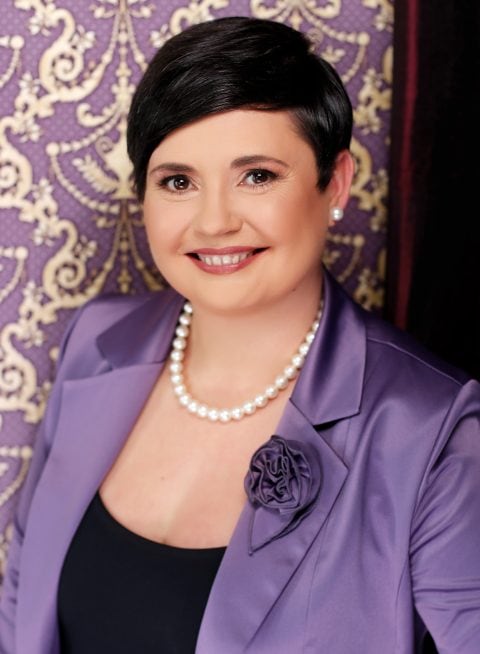Isn’t it a paradox? The biggest gender pay gap in the Czech Republic is recorded in the financial sector – 41% in 2017 according to the Czech Statistical Office (ČSÚ), as quoted by the initiative 22% to Equality. The financial sector is precisely the industry where one would expect women working with money to have a top level of financial awareness leading to no gender pay gap. So, what’s going on? Why is that not the case? And how comes that the Czech Republic is still lagging behind, with a 21.1% gender pay gap in 2017, on a shameful second place from the bottom in Europe?
I was born in a small village in Transylvania, Romania eight years before the fall of communism. The way work was split in our family was that it got done by the one who got to it first. You get home and see the cow needs feeding? You feed it. The child is crying? You change it, feed it or comfort it. Food needs to be prepared for the evening? You start with preparations, even though you are five or six years old. Work in our family was an unquestionable contribution to the well-being of the entire group. This is why, upon my relocation to the Czech Republic, I had a huge shock when I hit an unexpected wall: the gender role segregation.
In the Czech Republic, more than anywhere else in the world where I have traveled or lived, work and gender-related roles are allocated along the lines: the man provides money and the woman cares / provides conditions for the man’s well-being, so he can continue providing for the entire family.
A nice trade-off and an almost biblical picture, one might say. This segregation sounds like a fairytale unless you are a woman who finds fulfillment in her work (which puts you in an awkward personal and societal position) or unless your man decides to leave and start providing for the family next door (the overall divorce rate in the Czech Republic was 44% in 2019, according to ČSÚ). This is where the fairytale ends and women in the Czech Republic start to become painfully aware of the level of co-dependency insidiously cultivated in the Czech system.
Let’s say it out loud: encouraging three to four years of maternity leave, a record worldwide, would not a problem in itself as long as anyone deciding differently would have a chance, too: equal access to affordable childcare under the age of three, flexible jobs, no societal shunning and, most importantly, equal salary upon return to work.
Having said that, we also need to admit that the gender pay gap in the Czech Republic is only partially generated by the structure of the Czech economy and the length of the maternity leave, and much more by the biases that we hold against women – men and women alike (a recent study quoted by BBC shows that 9 in 10 people hold biases against women). If we really want the situation to change, it is time that all of us took a solid look in the mirror and ask ourselves what we can do to influence things for the better.
Here are a few things that we can consider if we’d like to address the systemic challenge that is the gender pay gap in the Czech Republic.
-
Tackle unconscious bias
Two years ago I was hired by a major financial institution (!!!) to conduct training on unconscious biases. A few days later, the training sponsor called me. “I have an unusual request. Could you please not use the word bias in your training?” Ahmmm… sure. Let’s call it habitual brain pattern leading to making faster decisions. This is all that biases are – a way used by our brains to take shortcuts and make faster decisions based on previous information and experience. We all have biases and we are no better or worse when we have them. We are worse though when we know we have biases, we know they limit others and we do nothing about it.
-
Develop more empathy
We are where we are today, in the Czech Republic, not because options aren’t there, but because we simply don’t take a moment to look at things from the other’s perspective. How does a single mother feel when she’s looked up for deciding to go back to work a few month after birth so she can put bread on the table? How does an accomplished female professional feel when she’s being looked up in the same situation, even though her return to work could lead to significant positive impact on the lives of the people she cares about – her family, her team and her organization? How does a single mother feel when she has no place to put her child under three and she can’t afford one or two babysitters because she’s not working on a managerial position? Why during a job interview is the woman in front of us asking for less than she deserves, even though she’s obviously qualified for the job? Does she even know that she deserves more? How does a woman feel when, after decades spent at work, her pension is almost 20% lower than that of a man, placing her at the edge of poverty and in an undignified position of co-dependency towards children? Developing more cognitive and emotional empathy towards women is a good and essential first step; however, it is not enough. The second step is our capacity to act upon empathy and develop compassion, which is empathy put to work. A mindful, compassionate approach when deciding compensation in our organizations is a vital type of intervention that can have a massive impact on reducing the gender pay gap and inequalities in our organizations.
-
Invest more in experiential, self-confidence and negotiations training
I do personal branding, which is a lovely new discipline. Even though I have no problem to transfer the nuts and bolts of developing a solid personal brand to women from teenagers to 65+ women looking for a new purpose for their lives, the bottom line remains the same: women ask themselves ceaselessly whether they should go for it. I constantly hear: Should I do it? Do I dare to go out there, in front of the many people, and show my soul in its entire vulnerability? When a woman decides to go for it, she becomes unstoppable. But the hurdle behind women’s conscious communications, personal branding and full empowerment is, still, emotional. It lies in the capacity to make a conscious decision that standing up for one’s own worth is a meaningful act leading to personal empowerment, gains for those we care about and inspiration for generations of women to come after us. So, when companies decide to invest more into experiential training leading to developing women’s healthy self-confidence (emotional intelligence, personal branding, presentation skills, assertiveness, negotiation skills, difficult conversations, conflict and communications, voice management, media relations and so on), this is not a waste of time. It is an actual investment into equality and sustainability for your organization. For it is only through healthy self-confidence that the amazing skills of women can be unleashed and used at full potential for the benefit of themselves, their teams, your organizations and our society overall.
There is still so much that we can all do to reduce inequalities in the Czech Republic. And we can do it. Every year, for the last eleven years, an international conference in Prague tackles precisely these matters – Equal Pay Day. With tens of speakers and hundreds of participants, it is a well of information and inspiration for people striving to reduce (not only gender) inequality at work. Moreover, Equal Pay Day’s second day is dedicated to mentoring and women empowerment. Sixty experienced mentors come together voluntarily, sharing their experience and recommendations with hundreds of participants. This is an uplifting gathering bringing hope to those who need it the most – to women and men who, for whatever reason, feel the need to take their lives in their own hands. It may be for you or it may be for someone you know. Please send it forward.


